The DSF Group intends to publish several publications each year on various topics related to our thematic teams.
The DSFG thematic teams are responsible for identifying current issues that guide our publications each year. Below you will find various publication packages on different issues that DSFG network teams and members follow.
The majority of our publication packages contain a Working Paper written by a network member, Policy Brief Recommendations developed by our Junior Fellows, a GBA+ Application developed by members of the GBA+ team, and Infographics.
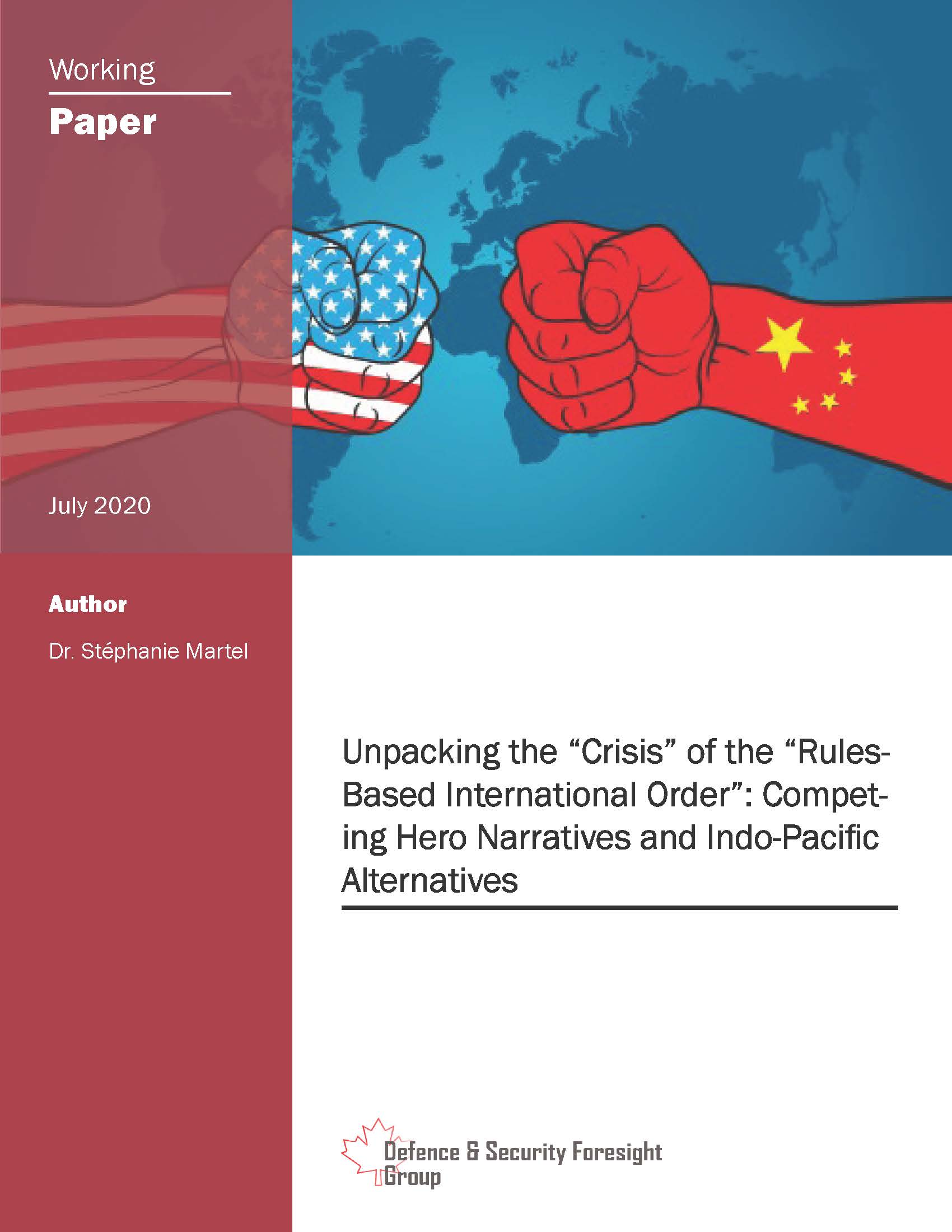
Unpacking the Crisis of the Rules-Based International Order
There is a broad consensus today that the rules-based international order (RBIO) is facing an unprecedented crisis. This situation has led to a proliferation of calls to protect, improve, or reform the RBIO to ensure its resilience in an evolving global landscape. Underlying most of these calls is a view of the RBIO as a self-evident thing with a fixed, consensual meaning. In practice, however, not much is consensual about the RBIO apart from a general sense that it is in crisis. In addition to a dominant, liberal, US-led variant of the RBIO, several alternative views on the RBIO are now emerging from China, Russia, as well as the United States, and vying for recognition. (Martel, 2020)
Working Paper by Dr. Stéphanie Martel
Policy Brief Recommendations by Sarah Sharma
GBA+ Application by Dr. Maya Eichler
GBA+ Application: Unpacking the Crisis of the Rules-Based International Order (PDF)
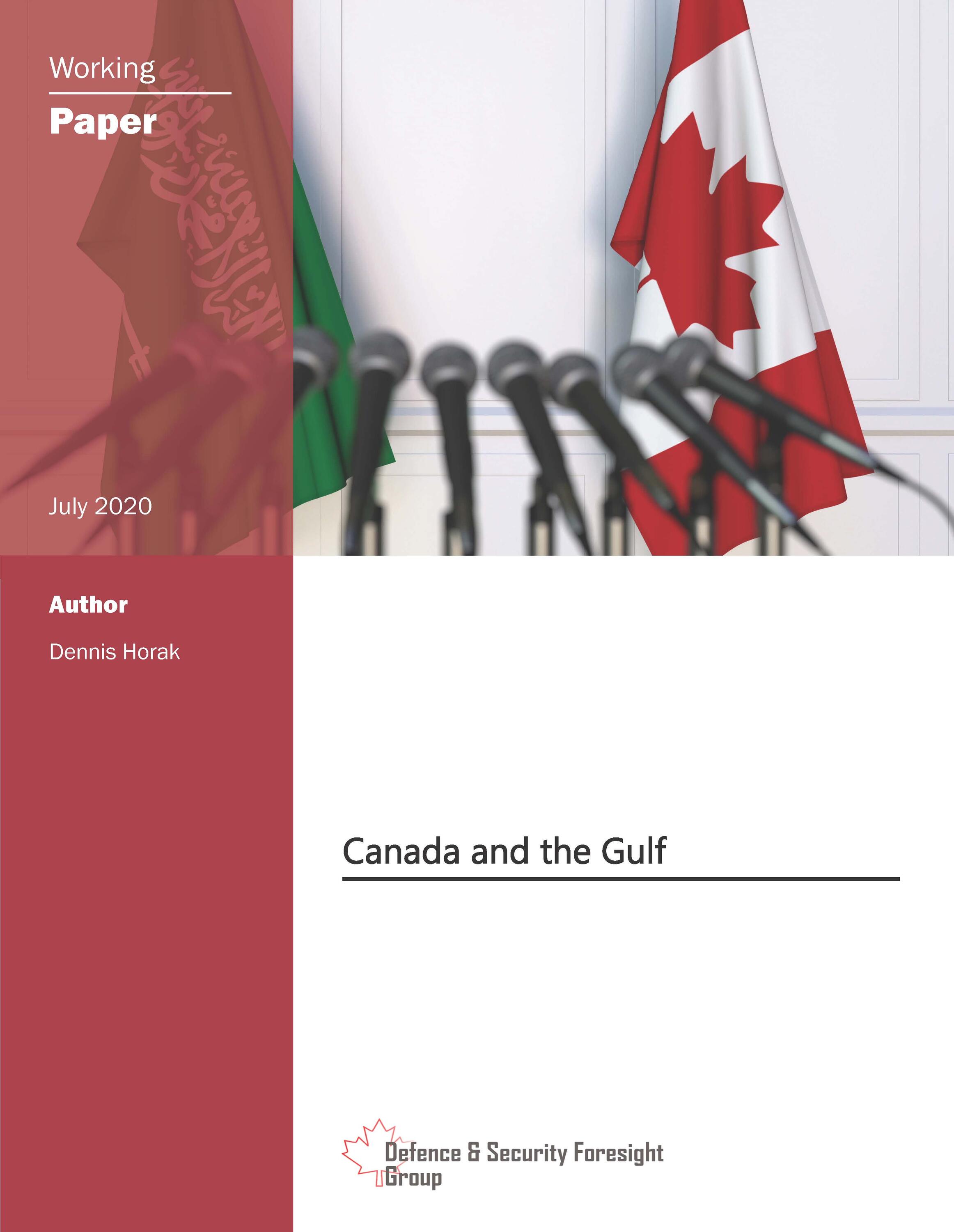
Canada and the Gulf
The article tracks Canadas relations with the Arab Gulf countries from the early days of the establishment of diplomatic ties in the years following the oil boom of the 1970s through to the upending of relations with Saudi Arabia in 2018. It highlights the consistent and sustained priority Canada attached to commercial links, even as regional developments forced political and security challenges onto the Canadian agenda. The article notes the central position occupied by Saudi Arabia in Canadas regional calculations, which only recently came to be challenged by the UAE. The author explores the shift in approach to the region brought by the Harper Government, including sustained political engagement across the Gulf and how the election of the Trudeau Government resulted in a return to more the more limited diplomatic focus Canada had traditionally brought to the Gulf, but with an heightened political focus on human rights (especially with Saudi Arabia). The author argues that the Gulf is too important to discount or ignore and that a resumption of normal diplomatic ties with Saudi Arabia, whatever problems Canada has with the regime, would be in Canadas interest. (Horak, 2020)
Working Paper by Dennis Horak
Canada and the Gulf_Working paper (PDF)
Policy Brief Recommendations by Bukola Solomon
Canada-Gulf Relations: Strengthening Strategic Ties and Promoting Re-Engagement_Policy brief (PDF)
GBA+ Application by Dr. Tammy George
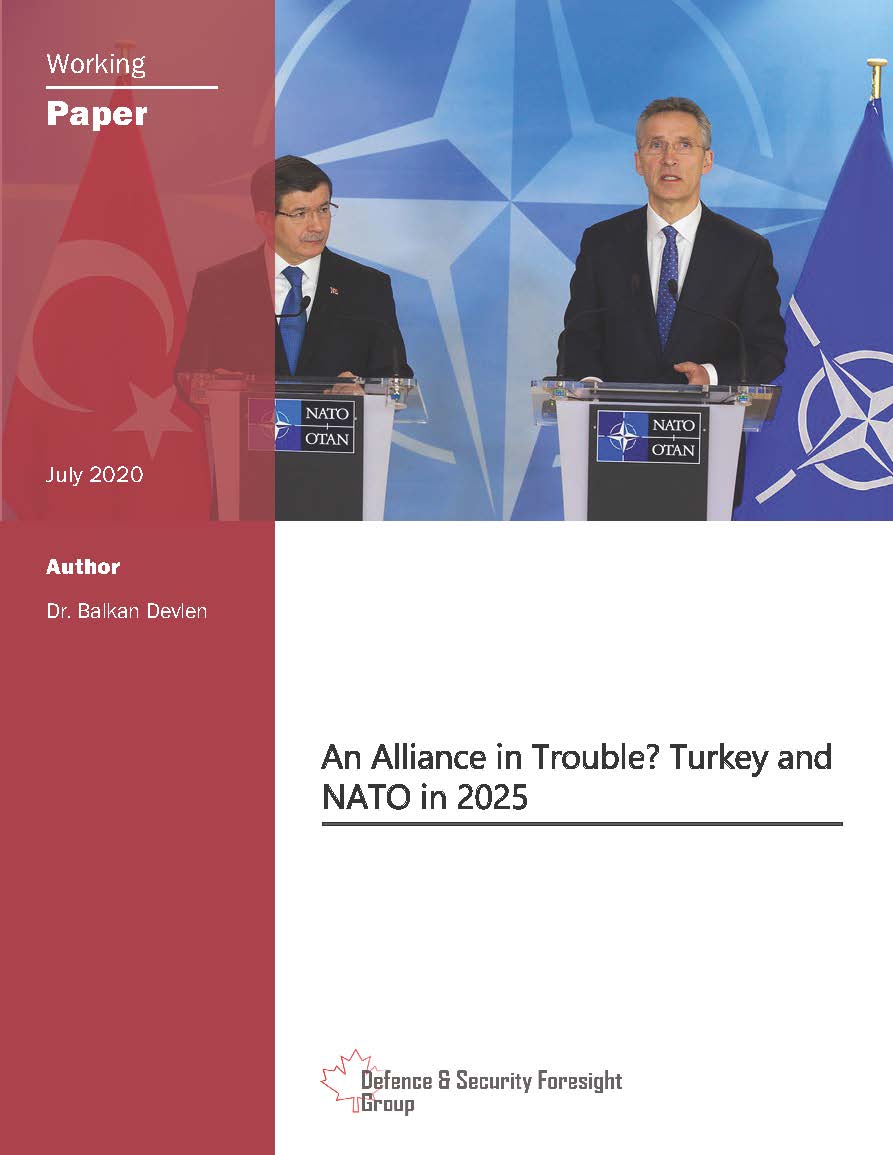
An Alliance in Trouble? Turkey and NATO in 2025
Turkey and NATO are at a crossroads. The relationship between Turkey and its NATO allies are at its lowest point since the end of Cold War. This paper aims to illuminate what the future of Turkey NATO relations could look like five years down the road in 2025 and what alternative futures would mean for Canadian defence and security by building on a Delphi workshop in early March 2020 with representatives from DND, GAC, CF, as well as scholars working on Turkey from Canada, the US, and Europe.
Building on the insights of the workshop, this paper posits three alternative futures labeled as Muddling Through, Return to the Fold, and Breakup. The overall message, both from the workshop as well as from the three possible futures discussed above, is that the likelihood of improvement in this relationship is slim. (Devlen, 2020)
Working Paper by Dr. Balkan Devlen
An Alliance in Trouble? Turkey and NATO in 2025_Working paper (PDF)
Policy Brief Recommendations by Tanya Irwin-Bandula and Sanjida Amin
An Alliance in Trouble? Turkey and NATO in 2025_Policy Brief (PDF)
GBA+ Application by Dr. Leigh Spanner
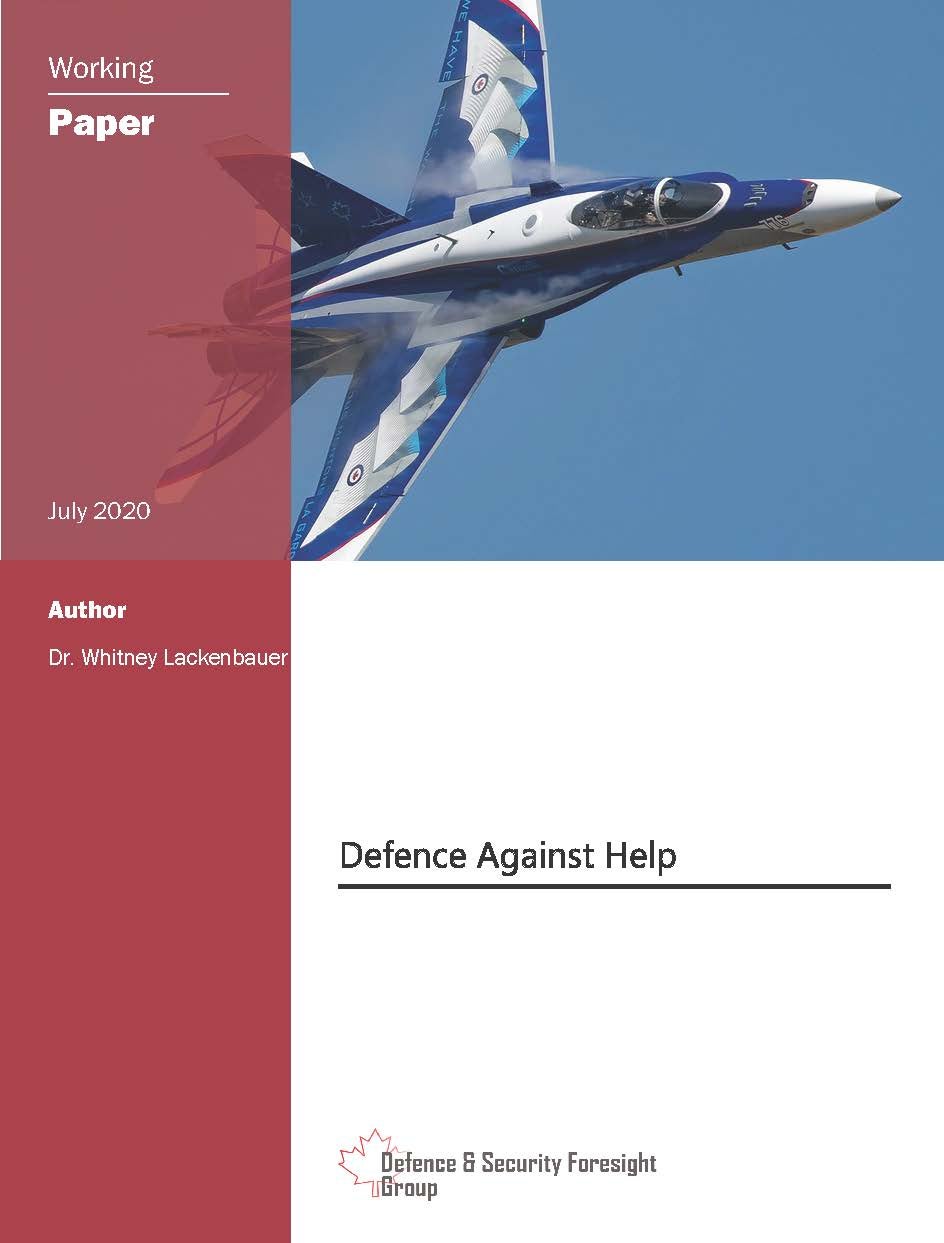
Defence Against Help: Revisiting a Primary Justification for Canadian Participation in Continental Defence with the United States
In its classic incarnation, the concept of defence against help thus represents a trilateral equation, consisting of an external threat (or threatening context), a smaller state (the security of which is inextricably linked to the perceived security of a larger neighbour), and the neighbouring larger power itself. The equation incorporates how the threat relates to the larger state, and how the smaller state plays (or does not play) an intermediary role in the threat relationship between the threatening context and the larger state. The smaller states policy decisions are determined by how and what the larger state perceives as threats; whether the smaller states territory, airspace, or maritime zones can play a potential role in offsetting or meeting the threat; and whether the smaller state can feasibly provide adequate defences and sustain military credibility to ensure that the larger power does not infringe on its sovereignty in meeting perceived security threats. Although two powers may share common basic values and definitions of the threat, the normative assumption is that it is always in the smaller powers national interest to be a sovereign state. Therefore, the smaller states national sovereignty concerns can confound the interdependent nature of the security relationship between neighbouring powers in the face of an external threat. (Lackenbauer, 2020)
Working Paper by Dr. P. Whitney Lackenbauer
Defence Against Help_Working Paper (PDF)
Policy Brief Recommendations by Vincent Boucher and Kristen Csenkey
GBA+ Application by Andrea Lane
GBA+ Application: Defence Against Help (PDF)
Infographics_DSFG_Lackenbauer (PDF)
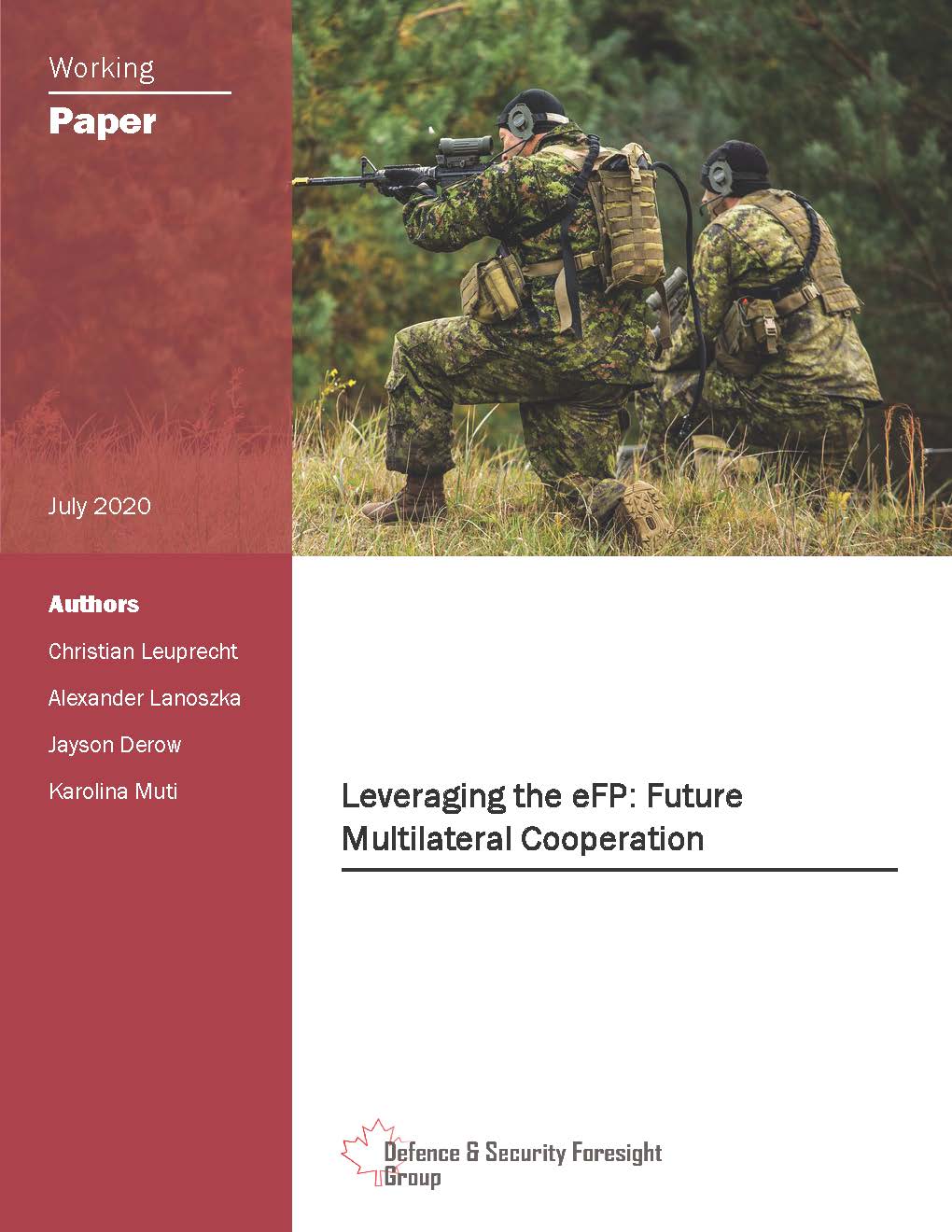
Leveraging the eFP: Future Multilateral Cooperation
Working Paper by Dr. Christian Leuprecht, Dr. Alexander Lanoszka, Jayson Derow, and Karolina Muti
Leveraging the eFP: Future Multilateral Cooperation_Working Paper (PDF)
Policy Brief Recommendations by Vincent Boucher, Sarah Sharma, Melissa Finn and Grant Curtis
GBA+ Application by Vanessa Brown
Leveraging the eFP: Future Multilateral Cooperation: GBA+ Application (PDF)
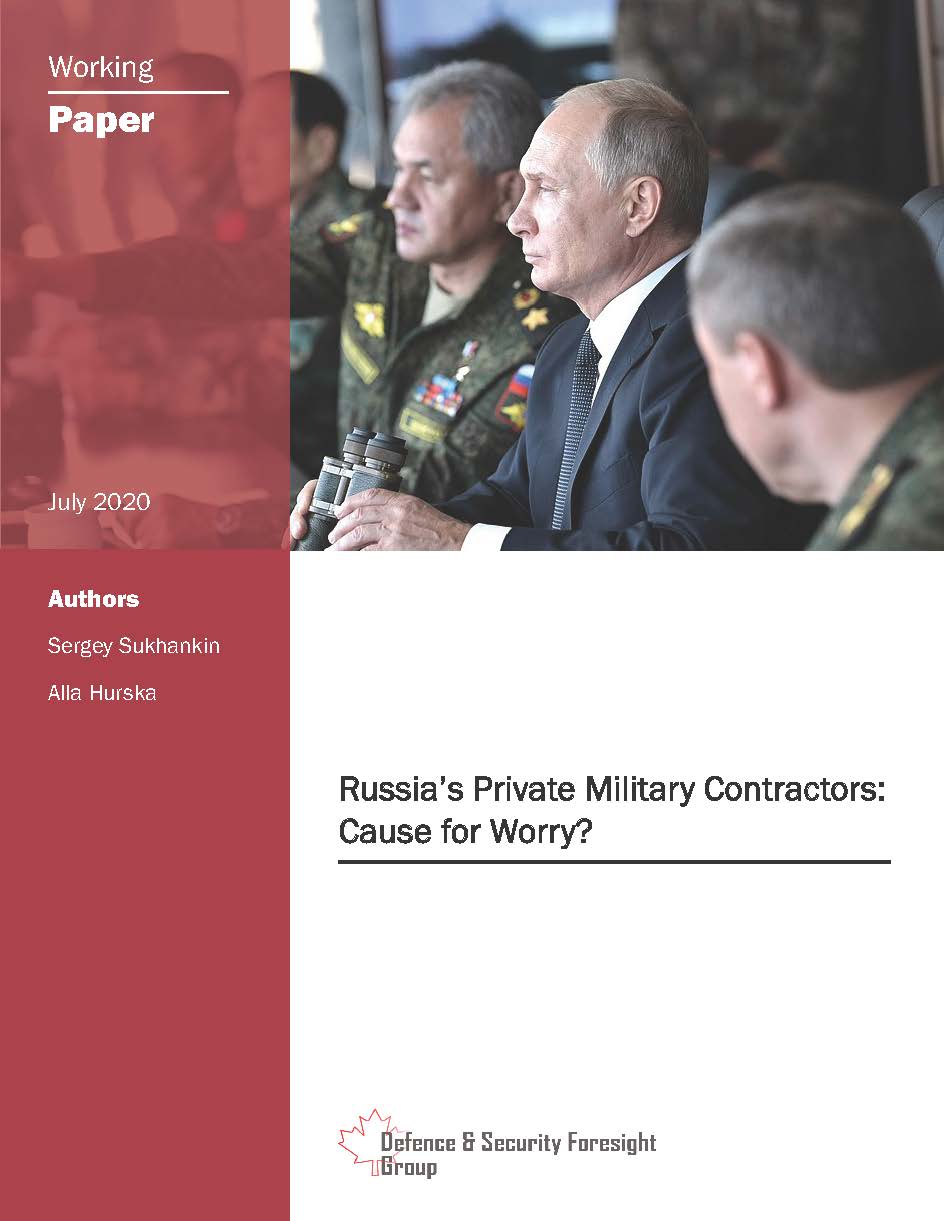
Russias Private Military Contractors: Cause for Worry?
Two major geopolitical shifts the Syrian civil war and the Ukrainian crisis drew attention of the global academic and policy-related community to the issue of Russia`s private military companies (PMCs) and the so-called Wagner Group that has operated in Ukraine, Syria, the Central African Republic, Sudan, Libya and Mozambique. In so doing, it has become the living symbol of Russia`s covert use of shady militarized groups and irregulars in a powerplay against the west and its allies as well as securing Russia`s geo-economic/strategic interests abroad.
Although they are effective as a tool against weaker opponents, we argue that Russian PMCs should not be viewed as a strategic element in Russias military toolkit. Indeed, their effective only when paired with Russias regular armed forces. We contend that PMCs are unlikely to be used against NATO members directly. Nevertheless, Russia will continue employing these forces in zones of instability as a means to engage the West in non-linear and asymmetric fashion. (Sukhankin and Hurska, 2020)
Working Paper by Dr. Sergey Sukhankin and Alla Hurska
Russias Private Military Contractors: Cause for Worry?_Working Paper (PDF)
Policy Brief Recommendations by Nico Saunders
Policy Brief: Russias Private Military Contractors (PDF)
GBA+ Application by Victoria Tait
GBA+ Application: Russias Private Military Contractors (PDF)
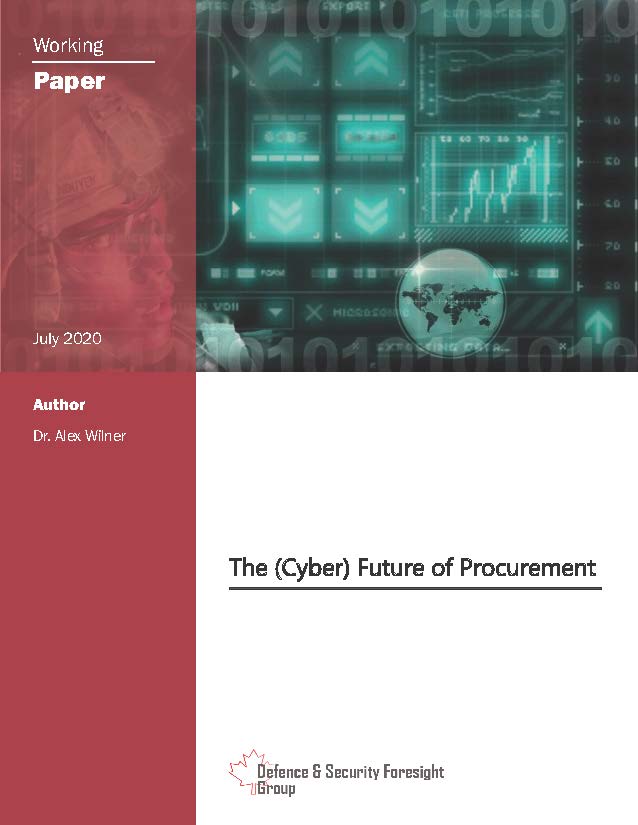
Cyber Futures: A Preliminary Scanning and Foresight Report
The objective of this paper is to explore the future of cybersecurity. Using a mix of tools and techniques derived from strategic foresight including domain mapping, horizons scanning, insight development, and scenario construction the paper will highlight how social, technological, political, and value-based change might influence cybersecurity in new and novel ways over the coming two decades. Strategic foresight is not used to predict the future, which is impossible. Rather, it provides a set of tools that allow us to better appreciate a range of possible and plausible alternative future scenarios and environments. Strategic foresight allows practitioners, researchers, and decision-makers to systematically contemplate future challenges and opportunities while improving their appreciation for how complex political and strategic issues might evolve. Knowledge of how cybersecurity might unfold provides us with an ability to anticipate change and avoid strategic surprise. The paper discusses where within the Government of Canada foresight is used in policy making, explains the basis and logic of foresight as a method of research, and applies a variety of foresight tools in envisioning alternative future cybersecurity scenarios. (Wilner, 2020)
Working Paper by Dr. Alex Wilner
Cyber Futures: A Preliminary Scanning and Foresight Report (PDF)
Policy Brief Recommendations by Kristen Csenkey
The (Cyber) Future of Procurement (PDF)
GBA+ Application by Andrea Lane

Worlds Colliding: Enhancing an organizations capacity for cross-boundary coordination starts with investing in people
The pursuit of enhanced coordination in the name of government efficiency and effectiveness is a historic one. It dates back to Max Webers classic model of the modern government bureaucracy (Sproule-Jones, 2000) and the foundations of ministerial accountability and vertical line departments that inform the structure and behavior of todays Westminster governments (Kavanagh Richards, 2001; Hood, 2005). Over the past 30 years the international communitys quest for global security, sustainable peace and development in an increasingly complex and volatile world has focused a persistent spotlight and a sense of urgency on the need for departments, teams and individuals to better understand what is meant by cross-boundary coordination and how it might be achieved. Even today references to Whole-of-Government (WoG) abound within the Canadian government as the term is used to describe a key characteristic of the governments approach to the global COVID-19 pandemic. (Baechler, 2020)
Working Paper by Dr. Jenny Baechler
Policy Brief Recommendations by Emmanuelle Rousseau
Policy Brief: Recognizing the Plurality of Cross-Boundary Interaction to Ensure its Efficiency (PDF)
GBA+ Application by Drs. Nadège Compaoré and Yolande Bouka
Infographics_DSFG_Baechler (PDF)